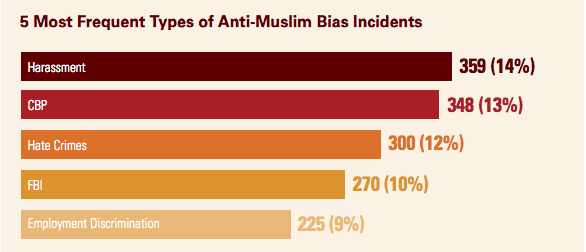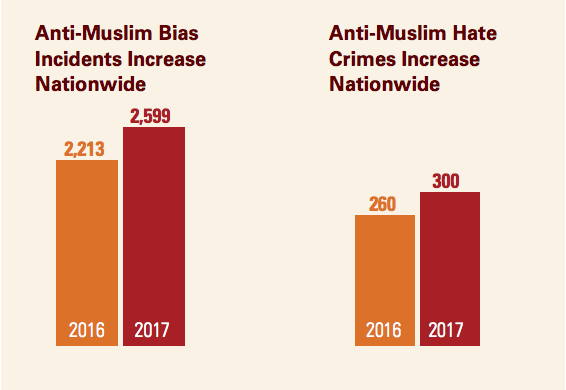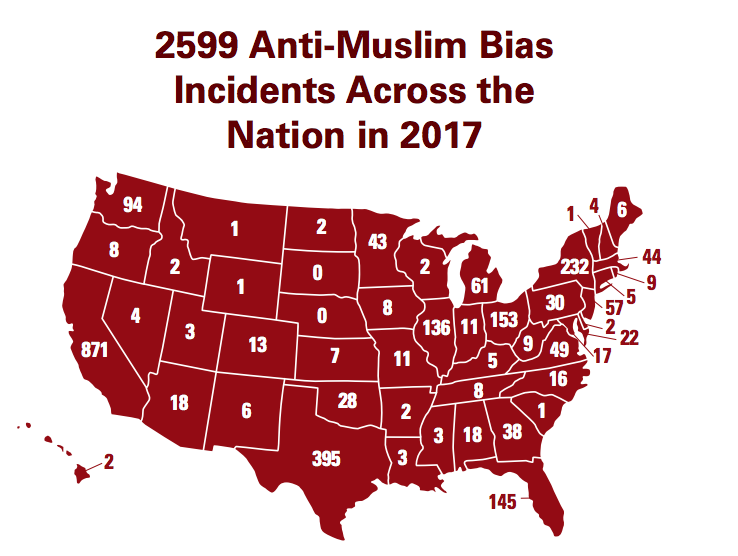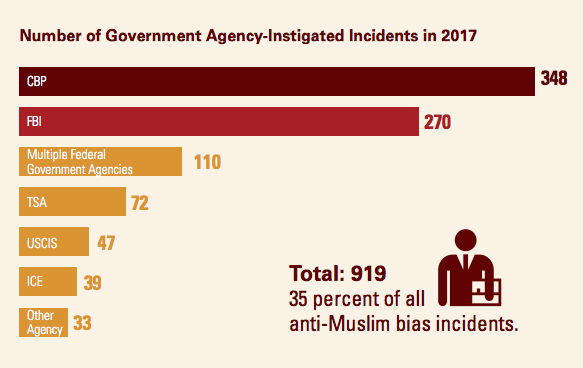A new report finds that anti-Muslim bias in the United States has increased considerably in recent years. Looking at reported hate crimes against American Muslims from 2016 to 2017, researchers at the Council on American-Islamic Relations noted a 15 percent spike.

The CAIR’s methods include monitoring media (including email, calls, and an online complaint system) and recording incidents of anti-Muslim bias, harassment, and other hate-fueled actions.

The report cites several individual case summaries of the direct effects of bias, including hate crimes in New York, intimidation in California, denial of service in Michigan, an anti-mosque bombing in Minnesota, and other events occurring nationwide.

The CAIR cites the election of President Donald Trump, his “Muslim ban,” and what the report describes as “xenophobic rhetoric” as catalysts for the marked uptick of anti-Muslim sentiment in the U.S. political climate and in daily life. A CAIR lawsuit on the ban says Trump’s actions “are arbitrary and capricious, shock the conscience, violate the decencies of civilized conduct, and are so brutal and offensive that they do not comport with the traditional ideas of fair play and decency.”

Perhaps the most worrying statistic, however, is the number of incidents that the CAIR found to be instigated by government agencies: It has increased from 540 incidents in 2016 to 919 incidents in 2017, accounting for 35 percent of all anti-Muslim bias incidents recorded in the U.S. in 2017.
The CAIR’s report provides recommendations to mitigate bias and harassment: Individuals can offer support and encouragement to Muslim friends and acquaintances, and elected officials can push for laws that protect minority groups.





